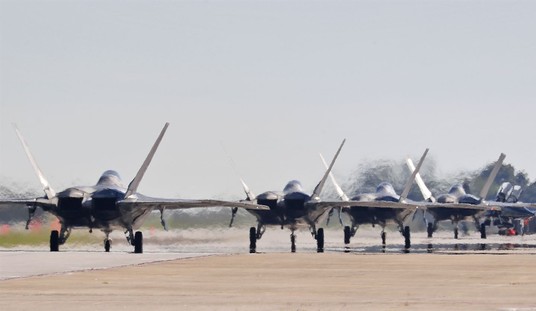Well, we knew that WHO knew it too — and blew it, for that matter. For the past three-plus months, the World Health Organization has publicly defended China and hailed its cooperation on the COVID-19 outbreak. WHO director-general Tedros Ghebreyesus insisted that Donald Trump’s criticism and threats to cut off funding were entirely misdirected and that WHO and China had passed along all relevant information on a timely manner. When Trump cut off the funding to WHO over the dispute, most of WHO’s other members took Tedros’ side.
After months of official denials, some WHO officials now tell the Associated Press that concerns got raised as early as January over China’s lack of disclosure. Had WHO gone public at that time, thousands of lives might have been saved:
Throughout January, the World Health Organization publicly praised China for what it called a speedy response to the new coronavirus. It repeatedly thanked the Chinese government for sharing the genetic map of the virus “immediately,” and said its work and commitment to transparency were “very impressive, and beyond words.”
But behind the scenes, it was a much different story, one of significant delays by China and considerable frustration among WHO officials over not getting the information they needed to fight the spread of the deadly virus, The Associated Press has found.
Despite the plaudits, China in fact sat on releasing the genetic map, or genome, of the virus for more than a week after three different government labs had fully decoded the information. Tight controls on information and competition within the Chinese public health system were to blame, according to dozens of interviews and internal documents.
So why didn’t WHO speak up about it? They thought they could wheedle more information out of the Xi Jinping regime by playing nice:
WHO officials were lauding China in public because they wanted to coax more information out of the government, the recordings obtained by the AP suggest. Privately, they complained in meetings the week of Jan. 6 that China was not sharing enough data to assess how effectively the virus spread between people or what risk it posed to the rest of the world, costing valuable time.
In that, they were hardly alone. Even the US played nice with Xi early on, in part to grease the wheels of cooperation, but also in part because WHO repeatedly insisted that China was being fully cooperative. It was only later, when it became obvious that China had covered up the outbreak and withheld vital information about it, that Trump reversed course — while WHO continued to defend Xi.
One of the people who raised these concerns internally was American MERS specialist Dr. Maria Van Kerkhove, a name that might be familiar to Hot Air readers:
“We’re going on very minimal information,” said American epidemiologist Maria Van Kerkhove, now WHO’s technical lead for COVID-19, in one internal meeting. “It’s clearly not enough for you to do proper planning.”
Van Kerkhove raised some eyebrows in mid-April, although far too few, when she alluded to her conclusion in late December that COVID-19 was showing signs of rapid transmission. Not only did van Kerkhove immediately suspect droplet or aerosol transmission of a respiratory disease similar to MERS, she said she warned WHO about her suspicions by January 10 in a series of “guidances.” Yet just a few days later, WHO infamously declared that they had seen no evidence of human-to-human transmission, ignoring both van Kerkhove and Taiwan, which issued a separate report hinting at the same conclusion.
The point here is that while the rest of the world relied on WHO, Tedros and his organization flat-out and knowingly lied about China’s cooperation. Some countries might have suspected that Xi and his regime were covering up the COVID-19 outbreak, but WHO knew that to the case — and said nothing. Instead, they sung Xi’s praises as the pandemic rocketed around the world, with an expected death toll in the millions and trillions of dollars of economic production evaporated.
These leaks suggest something else, too. There appears to be dissent within Tedros’ own regime at WHO, potentially a significant amount of it, now that the money has been cut off. Don’t forget that the US has been by far the single biggest contributor to WHO’s budget, and that the loss of that cash could mean a wholesale defenestration of the UN subsidiary’s operations. This AP report might be a sign of a palace revolt intended to oust Tedros and put a less Beijing-friendly director on the job as his replacement. The sooner that happens, the better.
Addendum: Jim Geraghty still wonders if the timing is right for playing hardball, but doesn’t question the need for it:
Ending U.S. funding for the World Health Organization may or may not be a good idea during a pandemic. But even those who want to continue funding must recognize that the WHO failed in its primary responsibility to provide timely and accurate information about a serious public threat. [Insert every “you had one job” gif here.]
If the WHO is incapable of reforming itself to ensure that it prioritizes accuracy and timeliness, what is the point of the organization? Governments of the world that prioritize accurate information over the sensitive egos of autocratic regimes ought to form their own international organization, to do the job that WHO is unwilling or incapable of doing.







